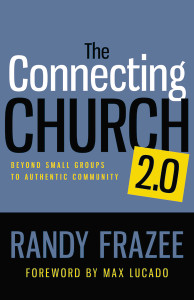Seven Areas of Negotiation with EA’s before they move Home
Sharing the expectations of both parent and child when moving home again is essential to a healthy relationship. Here are seven areas of negotiation before making the move. I call them areas of negotiation because neither side should enter the conversation with a sense of entitlement or a spirit of inflexibility.
1. Shared Spaces
Moving in together means sharing space – kitchen, bathroom, and storage, and vehicles.
Young adults consume MASSIVE amounts of food. One mother wrote, “We ran into trouble if we didn’t expect our son to be home for dinner and he showed up, because we may have prepared dinner for three instead of four.” Does the child have full access to the kitchen and food, or would you rather they not cook and eat the family pack of steak all by themselves? Do they have a place to store personal items that they want to eat? One family shared how they expected their EA’s to buy and cook at least one meal a week, in order that they learn the skill of cooking, and prepare them for living alone.
Several areas of potential conflict come up when sharing a bathroom. One mother writes, “When our son moved back home, he was once again sharing a bathroom with his little brother. We tried switching off every other week, but found they were more willing to clean ‘assigned’ areas they agreed upon beforehand.” Make sure you discuss the time that they plan on using it, in order to ensure each person has enough time to get ready and not be late.
Children moving home often bring more “stuff” than they left with (sometimes including pets?). Is there a place they can store boxes of items they will not use while they are home? Or do they need to rent an outside storage unit?
2. Private Spaces
What is allowed in the child’s room? Do you need to see the floor, or can you just  assume that it is still there? Some kids are very neat, while others are not. One mother writes, “In our situation, our son had WAY too much stuff than would comfortably fit in his room. The over-crowding plus his tendency to have a messy room became overwhelming for us as parents. Rather than constantly nag him about it, we just closed his bedroom door so we didn’t have to see the mess.”
assume that it is still there? Some kids are very neat, while others are not. One mother writes, “In our situation, our son had WAY too much stuff than would comfortably fit in his room. The over-crowding plus his tendency to have a messy room became overwhelming for us as parents. Rather than constantly nag him about it, we just closed his bedroom door so we didn’t have to see the mess.”
3. Finances
Are you expecting your young adult to pay rent or buy groceries? Are there other expenses you are expecting them to pay? These should be arranged before he or she moves home to ensure everyone is in agreement in this regard. One EA writes,
“my mom had always gone to the store with me and paid for necessities like toothpaste and other random things I may need. Suddenly that supply cut off and my mom started asking me to help out with buying some groceries. These things were all fine, but I would have rather had a list or something with everything that was expected. I like to know things ahead of time to prepare.”
I believe that if your emerging adult has a job, then they should be paying rent. Some parents charge rent, and then save it for their child as a gift when they move back out. This teaches them the responsibility of budgeting, and conditions them to lower discretionary spending.
4. Curfew
While many young people have been used to being on their own and not having a curfew at all, it should be addressed if the parent’s expect their young adult to be home by a certain time. If the young adult is not going to be home, a courtesy call to the parent’s to inform them of the change of plans is in order. One EA writes, “All of the sudden my parents cared what time I came home at night. They weren’t asking me to be home by a certain time, but wanted to know I was safe. It just felt weird since I could be out until whenever when I was at college and then when I move home suddenly it matters!”
If there are expectations, then express them. One EA voiced their frustration, “Although there was no set curfew, my parents would often make “suggestions”. For example, instead of seeing a movie at midnight, it was recommended I “wait to see it early the next day.” I could no longer stay up as long as I wanted without my parents “suggesting” I sleep early.” The ability of EA’s to be able to set their schedule and values is important (autonomy), and should not be hindered because of moving home.
5. Friends
You lost the battle over who their friends were in middle school (or maybe third grade), but in this new phase of life, talk about when they can invite friends over. Some families always make room for the night or at the dinner table while others prefer more privacy.
In today’s world, you must also discuss sleeping arrangements. You cannot control your EA’s sexual activities, but you can set expectations when they are living in your home. Although you cannot control them, there is nothing wrong with stating clearly, “Not in our house.” You have the freedom to set and express the morals you want observed in your home.
6. Chores
If an adolescent lived with few expectations to work while at home, they will expect this to continue. While others who worked all the time while at home, will expect more of the same. Some chores include: laundry, dishes, cooking, bathroom, car maintenance, mowing the grass, and snow removal. I recently talked to one EA who was surprised at how many ‘errands’ her parents asked her to do while living at home. Simply “helping out around the house” may be enough for some households, while others might want to be very specific.
7. Departure
All good (and bad) things must come to an end. So whether the departure ends good or bad, what will it look like? What time frame will be given for parental “eviction.” What time frame will you allow for them to find a new place? What resources will they have available to help with the transition?
Each child and family is different. You may not need to discuss each of these areas. Also remember that contracts will also have to be re-negotiated with time.
Overall, remember to focus on the important battles, and pray that you and your home will be a place filled with grace by the power of the Spirit of God.
Written by Dr. G. David Boyd and Kari Peterson.
Resources
Mitchell, Barbara. The Boomerang Age.









![bird-nest-tree-2028508-o[1]](http://www.earesources.org/wp-content/uploads/2013/10/bird-nest-tree-2028508-o1-300x300.jpg)
![arde-ardeaalba-egret-2476872-h[1]](http://www.earesources.org/wp-content/uploads/2013/10/arde-ardeaalba-egret-2476872-h1-300x300.jpg)

![tools-toolbox-basement-2028410-h[1]](http://www.earesources.org/wp-content/uploads/2013/09/tools-toolbox-basement-2028410-h1-300x300.jpg)

![blackfriday-consumerism-materialism-1251010-h[1]](http://www.earesources.org/wp-content/uploads/2013/09/blackfriday-consumerism-materialism-1251010-h1-300x225.jpg)
![stickyfaith-parent-edition[1]](http://www.earesources.org/wp-content/uploads/2013/09/stickyfaith-parent-edition1-205x300.png)

![girl-woman-hair-1276336-l[1]](http://www.earesources.org/wp-content/uploads/2013/09/girl-woman-hair-1276336-l1-203x300.jpg)

